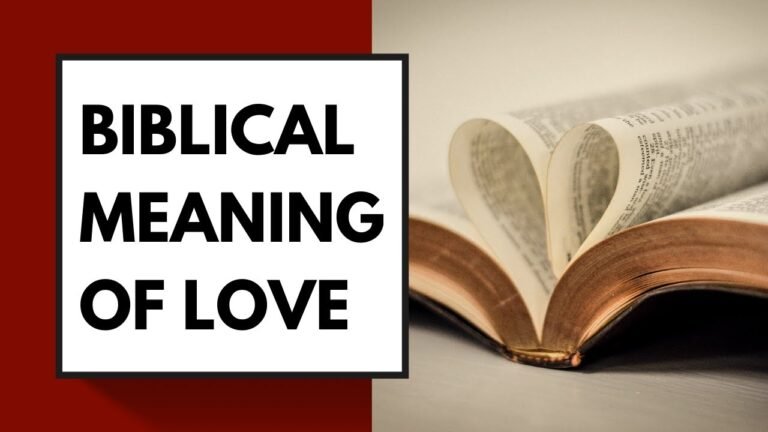The Essence of Unalienable Rights: A Foundation for Freedom
In a world where individual freedoms often clash with governmental authority, the concept of unalienable rights stands as a cornerstone of democratic ideals. Rooted in the belief that certain rights are inherent to every human being, these principles transcend laws and cultures, serving as a universal standard for justice and equality. As societies grapple with issues of autonomy, security, and social justice, understanding the significance of unalienable rights becomes essential in fostering a more equitable world. This article explores their historical context, contemporary relevance, and the ongoing struggle to uphold these fundamental freedoms.
What are the origins of unalienable rights?
Unalienable rights originate from natural law and Enlightenment philosophy, asserting that certain rights are inherent to all individuals and cannot be surrendered or transferred.
What are unalienable rights, and how do they differ from other types of rights?
Unalienable rights are fundamental entitlements inherent to all individuals, often associated with concepts of life, liberty, and the pursuit of happiness. These rights are considered universal and cannot be surrendered or transferred, standing in contrast to other rights that may be granted by governments or societies and can be altered or revoked. While legal rights, such as those established by laws and constitutions, can vary based on jurisdiction and cultural context, unalienable rights are seen as intrinsic to human dignity, serving as a moral foundation that guides the creation and interpretation of laws.
Why are unalienable rights considered fundamental to human dignity and freedom?
Unalienable rights serve as the bedrock of human dignity and freedom, embodying the essential principles that safeguard individual autonomy. These rights, often seen as inherent to all human beings, transcend governmental authority and societal norms, ensuring that every person is treated with respect and honor. By recognizing these rights, societies affirm their commitment to valuing each individual’s existence and fostering an environment where personal freedoms can flourish.
The acknowledgment of unalienable rights creates a framework for justice and equality, empowering individuals to pursue their aspirations without fear of oppression. This framework not only protects individuals from arbitrary power but also promotes a collective responsibility to uphold the rights of others. In this way, the concept of unalienable rights fosters a culture of mutual respect, where diversity is celebrated, and every voice has the potential to contribute to the greater good.
Moreover, unalienable rights are integral to the pursuit of social progress and human advancement. When individuals are free to express themselves, engage in open dialogue, and challenge injustices, societies evolve towards greater equity and inclusion. As a result, these rights are not merely legal constructs; they are vital to the moral fabric of humanity, reinforcing the idea that genuine freedom is rooted in the recognition and protection of every person’s inherent dignity.
How do unalienable rights relate to the Declaration of Independence and its principles?
Unalienable rights are central to the principles outlined in the Declaration of Independence, serving as the foundation for the American quest for freedom and equality. These rights, which include life, liberty, and the pursuit of happiness, are deemed inherent to all individuals and cannot be surrendered or transferred. The Declaration asserts that it is the government’s responsibility to protect these rights, reflecting the Enlightenment ideals that inspired the founding fathers. By emphasizing that unalienable rights are self-evident and bestowed by a Creator, the Declaration not only justifies the colonies’ break from British rule but also establishes a moral framework for the new nation, advocating for a government that derives its power from the consent of the governed and prioritizes the protection of individual freedoms.
Can unalienable rights be limited or revoked by government actions, and if so, under what circumstances?
Unalienable rights, often viewed as fundamental and inherent to every individual, are typically understood to be protected from government interference. However, there are circumstances under which these rights may be limited or temporarily revoked. For instance, during times of national emergency or significant public threat, governments may enact measures that restrict certain freedoms, such as freedom of assembly or speech, to ensure public safety and order. Such actions, however, are generally subject to strict scrutiny and must demonstrate a compelling justification to be deemed lawful.
The principle of proportionality plays a clave role in determining the legitimacy of any limitations placed on unalienable rights. Governments must ensure that any restrictions are necessary and tailored specifically to address the issue at hand, avoiding broad or arbitrary measures that could infringe on individual freedoms. Additionally, there must be a clear pathway for individuals to challenge these limitations, safeguarding against potential abuses of power. This balance ensures that while rights may be temporarily constrained, they are not permanently revoked without due process.
Ultimately, the delicate interplay between unalienable rights and government authority underscores the need for vigilance in protecting individual freedoms. Civic engagement, legal oversight, and public discourse are essential in holding governments accountable for their actions. As society navigates complex challenges, it is imperative to reaffirm the commitment to uphold unalienable rights while recognizing the nuanced circumstances that may necessitate their limitation, always with a focus on restoring those rights as swiftly as possible.
Discovering the Core Principles of Human Liberty
Human liberty is rooted in the fundamental belief that every individual possesses inherent rights and freedoms. At its core, this principle asserts that each person has the autonomy to make choices that shape their own lives, free from unwarranted interference. This intrinsic value of personal freedom is not only a cornerstone of democratic societies but also a universal ideal that transcends cultural boundaries, fostering a sense of dignity and respect for all.
In understanding human liberty, it is essential to recognize the balance between individual rights and communal responsibilities. While the pursuit of personal freedom is vital, it must coexist with the recognition of others’ rights. This delicate equilibrium encourages a society where individuals can thrive while contributing to the common good, promoting harmony and cooperation. By embracing this interconnectedness, we cultivate a culture that values both personal expression and social cohesion.
Moreover, the evolution of human liberty is shaped by ongoing dialogues and movements advocating for justice and equality. Throughout history, various struggles have illuminated the need to expand freedoms, challenging oppressive systems and redefining societal norms. As we continue to explore and celebrate the principles of human liberty, we are reminded of the importance of vigilance and activism in safeguarding these rights, ensuring that they are upheld for future generations.
Unpacking the Foundations of Inherent Freedoms
Inherent freedoms form the bedrock of democratic societies, embodying the fundamental rights that every individual is entitled to by virtue of being human. These freedoms, including the right to speak, think, and live without undue restraint, empower citizens to express their identities and engage in meaningful dialogue. By recognizing and protecting these rights, societies foster environments where creativity, innovation, and diversity can flourish, ultimately leading to a more vibrant and resilient community.
However, the true essence of inherent freedoms goes beyond mere legal protections; they require active cultivation and vigilant defense. As societal norms evolve and new challenges arise, the commitment to uphold these freedoms must be unwavering. It is essential for individuals and institutions alike to advocate for and educate others about these rights, ensuring that everyone understands their significance and feels empowered to claim them. Only through collective awareness and action can we safeguard the foundations of our freedoms for generations to come.
Understanding Rights That Cannot Be Taken Away
In a world where laws and regulations can change, understanding the concept of inalienable rights is essential. These fundamental rights are inherent to every individual, transcending cultural and national boundaries. They include the right to life, liberty, and the pursuit of happiness, serving as a foundation for justice and equality. Recognizing that these rights cannot be surrendered or revoked empowers individuals to stand firm against oppression and advocate for their freedoms.
Moreover, inalienable rights serve as a clave reminder of our shared humanity. They foster a sense of community and responsibility, encouraging us to protect not only our rights but also those of others. By championing these rights, we create a more just society where everyone can thrive. Understanding and defending inalienable rights is not just a personal mission; it is a collective endeavor that strengthens the fabric of our global community.
The Pillars of Personal Autonomy and Justice
Personal autonomy is foundational to fostering a society where individuals can thrive and express their true selves. It empowers people to make choices that align with their values and beliefs, facilitating a deep sense of ownership over their lives. By championing personal autonomy, we cultivate environments that encourage self-discovery and personal growth, allowing individuals to navigate their paths with confidence and purpose.
Justice, on the other hand, serves as the framework that ensures fairness and equality in the pursuit of autonomy. It upholds the rights of individuals to make choices free from oppression and discrimination, creating a balanced society where everyone has the opportunity to flourish. When justice is prioritized, it strengthens the social fabric, enabling diverse voices to be heard and respected, thus reinforcing the essence of personal autonomy.
Together, personal autonomy and justice form a symbiotic relationship that enhances the human experience. When individuals are empowered to make their own decisions within a just society, they contribute to a collective narrative of progress and innovation. This interplay not only enriches personal lives but also propels communities forward, paving the way for a more inclusive and equitable world where everyone can realize their potential.
The enduring concept of unalienable rights serves as a cornerstone of human dignity and freedom, reminding us that every individual is entitled to life, liberty, and the pursuit of happiness. As we navigate the complexities of modern society, it is vital to uphold these rights, ensuring that they remain protected and accessible to all. By fostering a culture of respect and advocacy for unalienable rights, we can build a more just and equitable world where every voice is heard, and every person can thrive.





